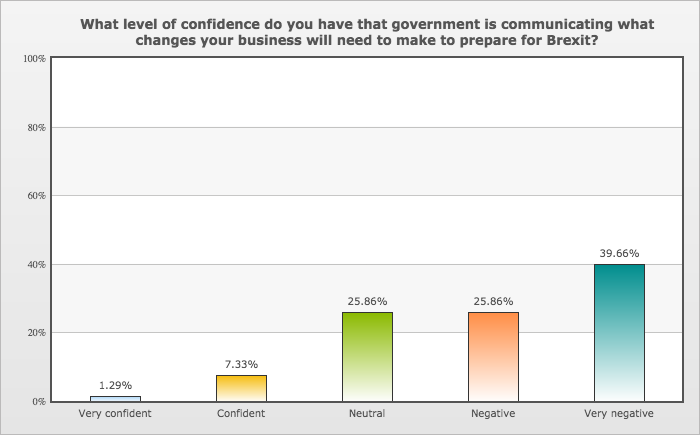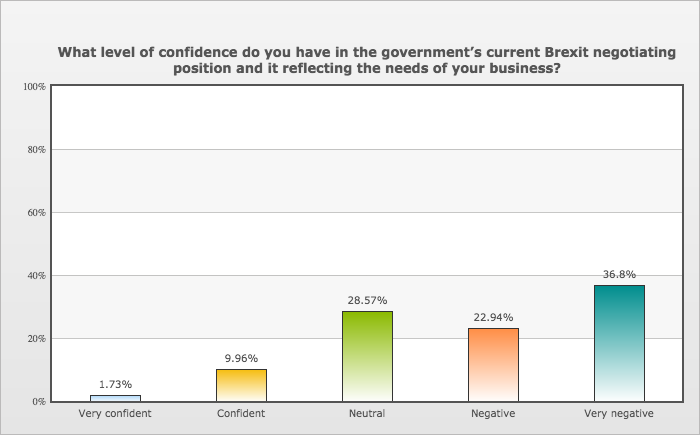Just one in 10 West of England businesses think the government will deliver a good deal on Brexit, according to the latest survey from the region’s largest business organisation.
And half of the firms taking part said they felt ‘negative’ or ‘very negative’ over the government’s Brexit negotiations.
When it comes to information from central government, a mere 8% of respondents said they were confident or very confident at what is being released, while just under two-thirds took a negative or very negative view.
The alarming picture emerges from the survey by Business West, which runs the Swindon & Wiltshire Initiative.
The results were released ahead of Prime Minister Theresa May’s Cabinet summit at her Chequers retreat and last night’s resignation by Brexit Secretary David Davis.
The anger among some businesses over what they see as the damaging delay in resolving the terms on which the UK will leave the EU in less than nine months burst out into the open recently with harsh warnings key figures in the automotive and aerospace sectors, including Honda and BMW, both with major plants in Swindon.
Last Friday Airbus chief executive Tom Enders repeated claims made by its UK bosses two weeks previously that it could pull out of the UK in the event of a hard Brexit – with a devastating impact on its Bristol plant and the wider West of England aerospace sector. He said the government had “no clue” on how to leave the EU.
Business West said it was clear that the continued political uncertainty was causing a significant slowdown in business investment and also beginning to impact on firms’ day-to-day decisions.
The boss of one Bristol-based business, Nigel Gainard from KN Office Supplies, urged government and the opposition to “get on with it and put the UK first, not their own agendas” in his survey submission.
Business West managing director Phil Smith, pictured, said many businesses felt that a line should be drawn under internal political debate and that government should deliver urgent clarity on the practical, detailed issues that underpin trade.
Otherwise the West would see a continued deterioration in investment intentions and confidence as the clock ticked down to October’s Withdrawal Agreement deadline.
“Over the past two years, businesses have been patient. We have supported the government’s drive to seek the best possible deal for the UK economy,” he said.
“We have given time, expertise and real-world experience to support hard-pressed civil service negotiators. We have brought local businesses and elected representatives and officials round the table to talk through their concerns.
“Now, with the time running out ahead of the UK’s exit from the EU, business patience is reaching breaking point.
“Businesses have every right to speak out when it is abundantly clear that the practical questions affecting the competitiveness of their firms and the livelihoods of their employees is at stake.
“With less than nine months go to until Brexit day, we are little closer to the answers businesses need than we were the day after the referendum.
“It’s time for politicians to stop the squabbling and the Westminster point-scoring – and start putting the national economic interest first. These are not ‘siren voices’ or special interests. They are the practical, real-world concerns of businesses of every size and sector, from across the region and in every part of the UK.”
As negotiations progress, Business West will be assessing progress against the British Chambers of Commerce’s (BCC) key questions about Brexit as well as closely monitoring sentiment among local businesses.
BCC has drawn up 27 real-world questions businesses are asking about Brexit. It says the government has managed to make limited progress on just two of the 27 issues where clarity is needed, and little or no progress on the remaining 25.
Source: Business West


















